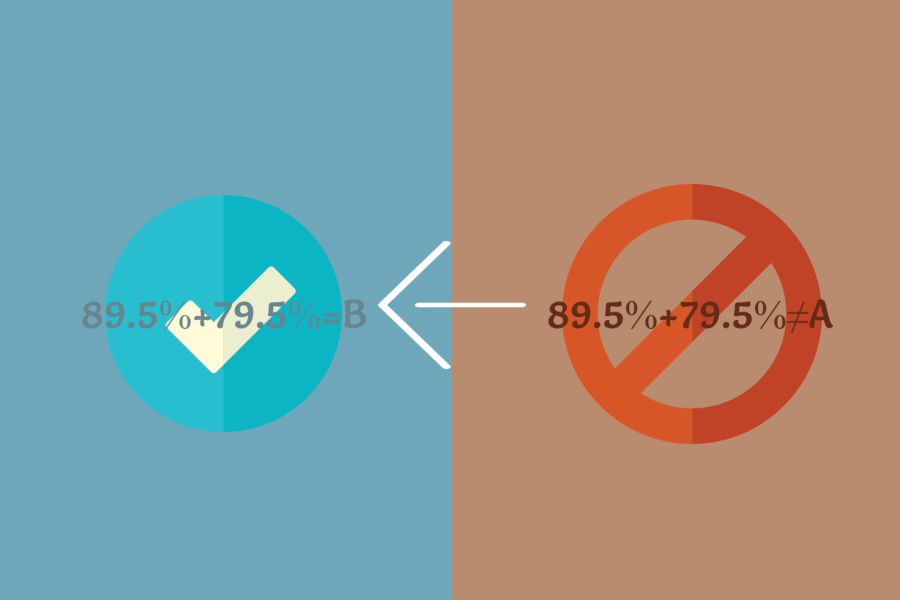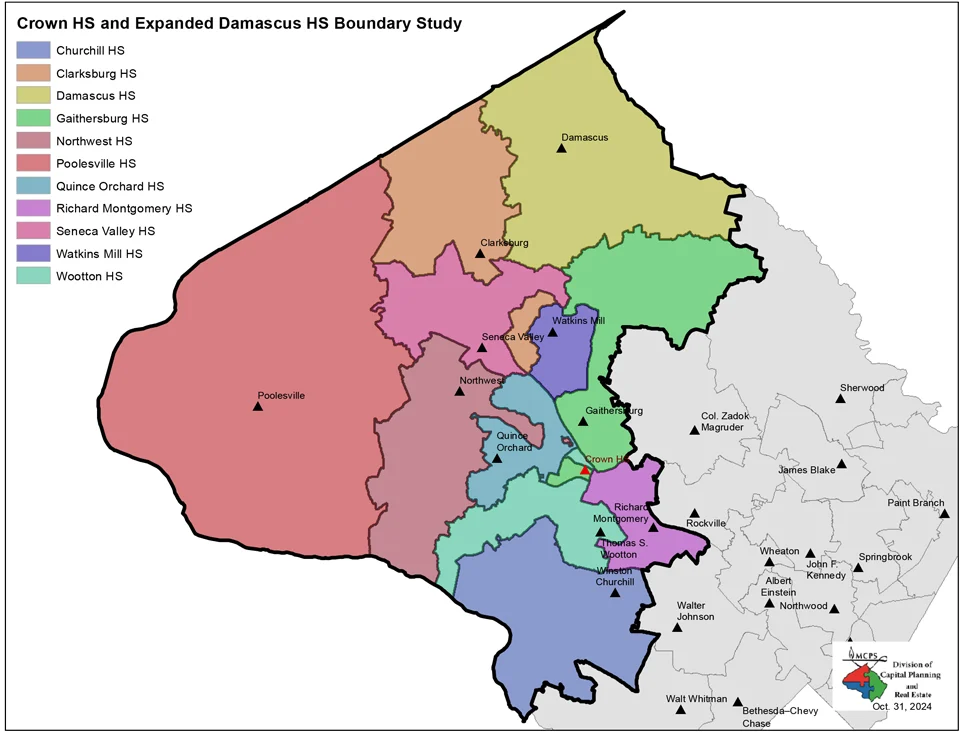“I don’t need an A; I got one last quarter” is a common refrain among Whitman students. While many consider this phrase a verbal admission of slacking, it’s actually evidence of strategizing: Students give complete focus, just to different classes at different times.
When MCPS and the Board of Education discontinued finals, they established a new grading system that rounded up by letter. With an ‘A’ in the first quarter and a ‘B’ in the second, the semester grade system defaults to an ‘A,’ for example. In other words, each student can afford to get an ‘A’ one quarter and a ‘B’ the next and still earn a semester grade for an ‘A’ — the only letter reported on the transcript.
The semester grading system allows Whitman students to allocate focused time to their work and concentrate on different subjects at varying times. Critics should not see the semester grading system as promoting laziness. Instead, they should acknowledge its value in letting students divide their time and encouraging better mental health.
The county first created the updated grading system in response to complaints from teachers, students and parents of a “testing burden.” Before the policy shift in 2016, classes ended each semester with a week of exam days. The county scheduled exam day as a half-day comprising two exams allotted in the morning. The exams amounted to roughly another half-marking period when calculating semester grades. At the time, many argued that the system and midterm exams worsened stressful conditions for students.
However, when the more relaxed policy debuted, controversy followed. A Whitman teacher wrote an op-ed for Bethesda Magazine suggesting that the new policy limited rigor, calling it “shameful” because it would lead to grade inflation. That attitude persists today. Students regularly report that their teachers seem annoyed that some students can study less if they’ve received an “A” for the previous quarter. The criticism continues nationally as well.
Whitman is ranked second among public schools in Maryland based on college preparedness, test performance, student performance and graduation rate. This highly regarded school places immense academic pressure on students. It’s well-known that Whitman students worry about the number of AP classes they take, their workload, college acceptances and their grades.
Mental health and stress are especially significant issues at Whitman, given the intensity required to maintain an outstanding rank among public schools. For many students, the rigor of their course load makes it difficult to get high grades across all their classes simultaneously. Even if students appear to be working less diligently in one specific class during a quarter, there is a high likelihood that they’re placing their focus on another class at that moment.
That kind of multitasking isn’t a secret, and not all Whitman teachers are against the grading policy. Social Studies teacher Thomas Young said the grading system is accommodating to students, particularly when classes are demanding.
“In a place like Whitman, where students are very high-achieving and take on a tremendous workload, having the grading policy that allows for a ‘B’ one quarter certainly benefits student mental health,” Young said.
Time is always of the essence to high school students, as they often have to balance time for sports, extracurricular activities, jobs and classes. In 2021, 29% of high school students nationally reported constant poor mental health, according to the Centers for Disease Control and Prevention.
Whitman students are used to emotionally draining themselves to get their desired grades. Junior Caroline Easley said she has pushed her mental limits for this reason.
“All I could think about was how many points I needed to get an ‘A,’” Easley said. “It consumed so much of me that I had to spend less time with my family and friends, and it took away a lot of my overall happiness.”
Additionally, the semester grading system benefits more than just student mental health; the averaging of grades forces students to practice their time management skills. With college application deadlines, jobs, preferences and family events, it can feel almost impossible for Whitman students to do it all. Effectively prioritizing crucial tasks is an essential ability, and the semester grade system allows MCPS students to learn this life skill.
High school aims are twofold: to teach students skills and information and prepare them for the future. MCPS’ grade averaging system is a good start in transitioning students into a world of multitasking — even if that means being selective with their efforts.


















